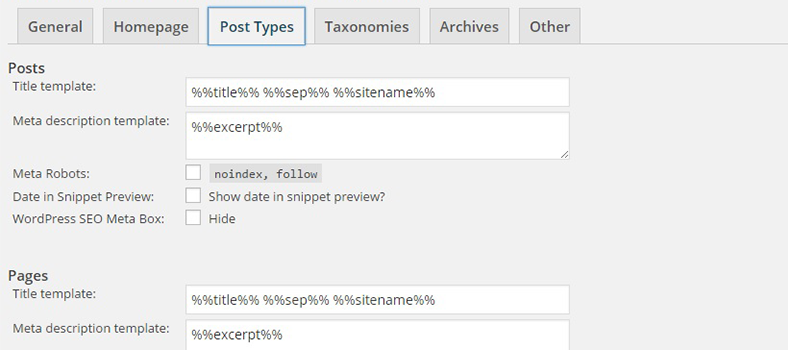How to Optimize Your SEO for WooCommerce [GUIDE]

SEO is one of the key issues for e-commerce, in general, since massive amounts of traffic and potential users come from the search engines. If the platform is poorly optimized or lacks necessary tools, the overall cost of optimization becomes several times higher or it becomes impossible to carry out optimization at all.
We’ve done SEO audit and optimization for a large number of online stores and achieved remarkable growth in SEO traffic. Every online store must have a certain set of features and tools, which are going to be reviewed in this article, along with WooCommerce SEO capabilities.
The most essential tool is Yoast SEO
In contrast to our other overall audits and researches on WooCommerce features, this time we are not examining the net WooCommerce, but adding Yoast SEO plugin, which is indispensable, in our opinion. Furthermore, it’s free and can be quickly installed through the WordPress plugins panel.

There are three versions of Yoast – basic, premium, and a paid version for e-commerce. During our analysis, we didn’t find any real need to get the premium or paid version for e-commerce, so we are going to review the basic one with all its features.
Okay, so let’s begin auditing…
Potential problems and risks for WooCommerce SEO
Many platforms have lots of weak spots, half-baked in terms of SEO, which constitute barriers to further promotion. We’ve tested some of them:
Noindex, Nofollow on service pages
Very often, some service pages, such as Sign Up, Forgot Your Password or Shopping Cart, are open to indexing. This creates many junk pages, which impedes normal indexing of the online store. Due to Yoast, there is no such trouble spots in WooCommerce.
Canonical links in categories pagination
Category pages often contain page navigation, e.g. sorting by newness, price, filters by features. All these additional parameters create extra URLs, which are seen by search engines as page duplicates. With Yoast, there are no such potential problem spots.

No page duplicates
There also can be a lot of page duplicates on other platforms. Such pages have few URL addresses without redirects or canonicals, which hinders further promotion in search. Luckily, WooCommerce doesn’t have this problem.
Redirect from “www.” to “non www”, from “http” to “https”
These settings can be done from the admin section, as Yoast allows you to edit .htaccess file.
Thus, due to the Yoast and WooCommerce combo, you can be sure that there is no trouble spots in your online store, and it is generally ready for promotion.
Friendly URLs
In WooCommerce, you can set URL address for categories and products by default with required prefix:
/shop/ or /shop-product/, /shop-category/
These prefixes add “junk” and unnecessary keywords to URL address.
Ideally, an online store URL should contain a full path to product or category, for example:
your_shop.com/category_name/subcategory_name/product_name
In this case, there should be additional required keywords for your products in URL.
Alternatively, you can disable prefixes to get as “pure” an URL as possible without unnecessary keywords:
your_shop.com/category_name
your_shop.com/product_name

Update. We’ve announced our new free plugin for friendly URLs. You can watch it here: WooCommerce Permalink Manager: remove /shop, /product, /product-category from URL
Category filters
Category filters is a big thing, if your online store contains a lot of products, as it allows to filter all the products by attributes within the category.
SEO links for filter results
There is no possibility to use SEO URLs for filter results. In most cases, it’s not really needed, as filter results usually are not supposed to be indexed by search engines. However, there may be exceptions.
Automatic canonicalization in categories filters
With Yoast, all the pages with filter results are canonical to related categories. This works automatically, so you don’t need to set it.
Automatic canonicalization in categories filters by brand
Since there is no such parameter as brand by default, you should additionally check if the brand pages are properly optimized, when using other plugins.
Possibility to change canonical and meta tags on filter result page
If an online store is big, there’s often a need to create a SEO URL, disable canonical tag for a certain filter page, and add meta tags to get it indexed for the search. This option is not default, and we are going to address this topic in more detail later.
Image optimization
You can take alt text from the product database and add it to the images, as the images don’t contain alt text by default. Since alt text usually equals product name, it would be very helpful if the names of products were added to alt text automatically on product pages and catalogue pages. WooCOmmerce doesn’t have this feature so far.
Update. For image optimization you can use our free Yoast SEO WooCommerce Addon
Schema.org and Open Graph structured data
Using Yoast, we get almost all the parameters for structured data, except for a few.
Main Information – Schema
Basic settings are available, although the free version doesn’t have extra settings for address, working hours, etc. (According to http://schema.org/Store).
Product – Schema
Basic product information and comments are displayed, whereas necessary information about offers, prices and availability in stock is not. Information about image and brand is not displayed as well. You also can not add product video and its microdata.
Update. For complere schema.org and Open Graph structured data you can use our free Yoast SEO WooCommerce Addon
Breadcrumbs – Schema
Proper markup is automatically displayed on the online store pages.
Open Graph
Yoast allows you to set all necessary information for all online store pages, making it easy to share information in social media. There’s no need for any additional tools.

Essential WooCommerce SEO tools
There are some essential WooCommerce SEO tools, which can accelerate all necessary optimization settings.
Automatic generation of meta tags for products, categories, brands
Yoast provides a flexible toolkit for setting automatic generation of all meta tags on required pages.

301 Redirect module
301 Redirect module is not available by default, but it’s offered in the premium version of Yoast or in a large amount of other free plugins.
We’re going to review these options additionally.
XML sitemap with automatic generation
Due to Yoast, everything is generated correctly. There’s no need for additional tools.
Content optimization tips
Yoast gives recommendations on how to properly optimize the description for product, articles and category pages, which is quite a useful tool.
Automatic internal linking of products
Unfortunately, you can’t set automatic structure building and internal linking on product pages. We will cover this topic in greater detail later.
Meta menu and links
Your online store may have a lot of categories with all the category links placed in the top menu and duplicated in the footer. In this case, it would be more efficient to create JavaScript links instead of URL links, in order not to dissolve or pass on the weight of website links. So far, there is no possibility to create a JavaScript link type in the menu.
Keep in mind
Performance
Online store speed standards are very high for today. Your website pages should load no longer than 3 seconds on desktop and 2 seconds on mobile. Every extra second will affect your online store conversion and weaken its position in search results.
We’ll get back to performance as we continue our research.
Mobile friendly
It’s no secret, that mobile optimized website is a must-have, as Google generates its search results considering primarily mobile optimization of the crawled websites.

SSL
In order to get your website successfully promoted in search, it must have SSL certificate and http version, otherwise it automatically gets demoted in the search results.
In our next articles on WooCommerce SEO, we are going to look through all the lacking features of basic WooCommerce and Yoast, review a range of SEO and content optimization techniques, and highlight contemporary search engines trends and recommendations.
Stay tuned!
Comments
Ready to Get Started?
Join over 100,000 smart shop owners who use Premmerce plugins to power their WooCommerce stores.
Get started